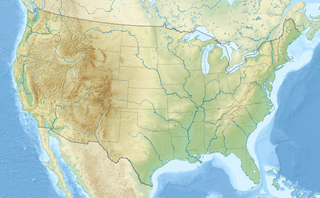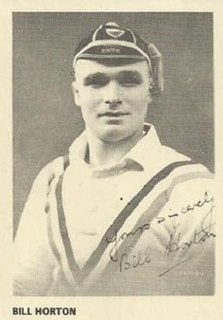James Bennett Elliott Ferrier was an Australian professional golfer from Manly, New South Wales. After compiling a fine record as an amateur golfer in Australia during the 1930s, he moved to the United States in 1940, turned professional in 1941, and joined the U.S. PGA Tour. He won the PGA Championship in 1947, among his 18 Tour titles, and was the first Australian and first golfer from the southern hemisphere to win a professional golf major title. Ferrier became an American citizen in 1944.

The New Zealand Open is the premier men's golf tournament in New Zealand. It has been a regular fixture on the PGA Tour of Australasia tournament schedule since the 1970s. The 2019 event was the 100th edition of the tournament. Since 2014 it has been held as a pro-am in February or March.
The Hon. Michael Scott OBE was an English amateur golfer, most famous for being the oldest winner of The Amateur Championship.
The 2nd Ryder Cup Matches were held at the Moortown Golf Club in Leeds, England. It was very cold, with hail and at one point heavy snow on the greens. About two thousand spectators saw America gain a narrow lead after the foursome matches before the Great Britain team won singles on the final day and thus the competition by a score of 7–5 points. George Duncan of Scotland became the first of only three British captains to lift the Ryder Cup which was given to him by Samuel Ryder who was in attendance after missing the 1927 matches.
The Auckland Rugby League competition has been competed for since 1909 when the first organised match was played between North Shore and City Rovers. The following year an official champion was crowned for the first time, namely the City Rovers club who won the 1910 1st Grade title and were one of the 4 original teams at that time. Over the following 110 years many team and individual trophies have been awarded. The following is a list of the clubs and individuals that they have been awarded to at the premier-grade level.

Ivo Harrington Whitton was an Australian amateur golfer, who, along with Greg Norman, is the only Australian to have won the Australian Open five times.
Michael Joseph Ryan was an Australian amateur golfer who won the Australian Open in 1932. He also played Australian rules football for South Melbourne in the Victorian Football League (VFL).

The 1930 PGA Championship was the 13th PGA Championship, held September 8–13 in New York City at Fresh Meadow Country Club in Flushing, Queens. Then a match play championship, Tommy Armour defeated Gene Sarazen 1 up in the finals for the second of his three major titles.

William Horton was an English professional rugby league footballer who played in the 1920s and 1930s. He played at representative level for Great Britain, England and Yorkshire, and at club level for Wakefield Trinity (captain), as a second-row, or loose forward, i.e. number 11 or 12, or 13, during the era of contested scrums.
Archibald Edward Wones Compston was an English professional golfer. Through the 1920s he built a reputation as a formidable match play golfer, in an era when many professionals made more money from "challenge" matches against fellow pros, or wealthy amateurs, than from tournament golf.
Arthur James Lacey was an English professional golfer who finished in the top ten of The Open Championship on four occasions in the 1930s. He also played in the 1933 and 1937 Ryder Cup matches, and was then selected as non-playing captain of the Great Britain and Ireland side for those matches in 1951. He was chairman of the PGA from 1949 to 1951.
Thomas Philip Perkins was an English professional golfer best known for winning the 1928 Amateur Championship.

Aubrey Basil Boomer was a professional golfer who played in the early 20th century. Boomer had three top-10 finishes in the Open Championship. He was a frequent competitor in the French Open and won the event five times.
The Leeds Cup is a golf tournament that has been played annually in northern England since 1902. The event is organised by the north region of the Professional Golfers' Association. It is the oldest trophy in professional golf that is still played for. The Tooting Bec Cup is older, having been first played for in 1901, but is no longer contested.
Robert Stewart Burns was a Scottish professional golfer. He was in the team for the 1929 Ryder Cup but did not play in any matches. He was Scottish Professional Champion three times.
The Midland Professional Championship is an annual golf tournament played in the English Midlands. The event is organised by the Midlands Region of the Professional Golfers' Association. It is the oldest tournament in professional golf having been first contested in 1897. It was originally organised by the Midland Counties Professional Golf Club, a forerunner of the PGA.
Thomas Peter Dobson was a Scottish professional golfer. He won the Scottish Amateur in 1925. As a professional he represented Scotland on many occasions in the 1930s.
Edward Simpson Douglas was a Scottish professional golfer. Douglas began his career in his native Scotland before briefly moving to the United States. Shortly thereafter, he moved the New Zealand where he became a star touring professional, winning the New Zealand Open four times and a number of other prominent titles. By 1925, he was described as "finest golfer New Zealand ever had."
The New Zealand Amateur is the national amateur golf championship of New Zealand. It has been played annually since 1893, except for the war years, and is organised by New Zealand Golf.
Harry William Hattersley was an Australian amateur golfer. He won the Australian Amateur in 1930 and 1947, and the New South Wales Amateur Championship in 1933, 1935 and 1950. He was part of an Australian team that went to Britain in 1938 and he later represented Australia in the Sloan Morpeth Trophy.




